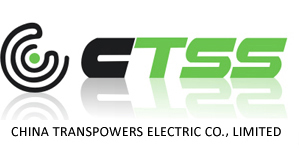Home >> News Center
EEPCo Delivers Power Correctors Too Slow, Continues to Fine Factories
2013-3-1 By MAHLET MESFIN FORTUNE STAFF WRITER FORTUNE STAFF WRITER
The Ethiopian Electric Power Corporation (EEPCo) failed to deliver power factor corrector (PFC) devices for which it had accepted payment, leading companies to pay penalties for wasted power, industry owners complained to the Ministry of Water & Energy (MoWE).
The PFC is a devise installed in industrial facilities to reduce the loss of power due to inefficiency of machinery by adjusting the power supplied to the machines according to need.
The complaint was made by the companies in a meeting called by the MoWE, two weeks ago, in order to discuss factories’ energy usage.
The meeting that was attended by representatives from around 40 companies in the manufacturing sector was chaired by Alemayehu Tegenu, minister of MoWE, along with state minister Wondimu Tekele and Getahun Moges, director general of the Ethiopian Electric Agency (EEA). Representatives of the EEPCo were also in attendance.
The companies making the complaint are among the 5,058 factories that the EEPCo has selected to install the device in the first phase, in the 2011/12 fiscal year, though its plan is to install it in all industrial facilities in the long-run.
The project is part of EEPCo’s demand-side management, which, aside from generating energy to fulfill the country’s demand, also focuses on using the already generated power properly.
In order to determine the type of PFCs suitable for each factory, the experts of the Corporation have studied the power usage of the factories for about a year and half. The EEPCo, thus, signed a contract with the companies promising to install the device while the companies are made to effect payment in installment.
In order to fulfill its contractual obligation, the EEPCo signed a contract with the Metal & Engineering Corporation (MeTEC) for the production of the correctors, in 2011/12 fiscal year.
However, the nascent military complex that also supplies transformers for the Corporation and is currently undertaking many of the mega national projects such as the mechanical works of the Great Ethiopian Renaissance Dam (GERD) did not manufacture the correctors on time.
Among companies that did not install the devices include Repi Soap & Detergent Factory SC, a sister company of Al-Sam and Burayu Packaging & Printing Industry.
Burayu, which is engaged in the production of packaging and printing materials, has signed a 400,000 Br contract with the EEPCo for the installment of the device, last year.
The EEPCo, however, did not install the device for about a year, according to Mesfin, finance manager of the Company.
Although representatives from the EPPCo were present at the meeting, they did not give any explanation during the meeting. However, Misekir Negash, head of the public relations at the EPPCo, told Fortune that the Corporation is testing the correctors that have so far been manufactured. He admitted to the delay, but would not comment on MetEC’s performance.
“It is because we are new to the technology that such delay has occurred,” he said.
Repi has signed a 233,000 Br contract with the EEPCo on October 2011 for the installment of a 150 KVA corrector in its factory.
“It delivered the device after a six-month delay,” Girma Worku, technical and production manager of the Company said.
By then, however, the Company had expanded, and the capacity of the corrector it had order was not longer enough, according to Girma.
“When we ask for the device suitable for our upgraded company, the Corporation told us to wait, stating that they did not have the device at the moment,” he said. “Hence we are being penalised for the power that we didn’t use.”
EEPCo has metres in each factory, which indicate the efficiency of power use. If the metre indicated less than 0.95, a minimum efficiency threshold set by the Corporation, the factories in question will pay fines for inefficiency of power use.
However, attendants proposed to the Ministry that the private sector should be involved to manufacturing of the devices, arguing that the MetEC was not handling it well, according to sources who attended the meeting.
Some companies have already installed the device by their own, such as Fincha Sugar Factory which uses 20 million KWH on a yearly basis to produce 2.7 million tonnes of sugar. The Factory has around five motors that are used to pump water; all fitted with correctors, according to Abayneh Lakew, Electric & Engineering general manager of the Factory. However, the Factory was told to change the correctors installed with the Corporation’s ones.
“They did not explain the faults of our correctors, they just simply say it should be changed,” Abayneh said. “Unless they convince us that the correctors have fault, we are not going to buy any from them.”
The companies were expected a detailed explanation on why such a delay occurred and when the Corporation will deliver the devices, Alemayehu simply promised that the devices would be ready soon. Officials at the MetEC declined to comment on the issue.


 Hydro Turbine Generator Units
Hydro Turbine Generator Units
